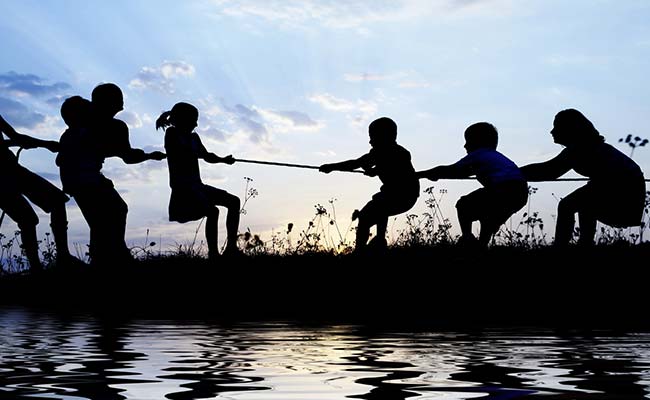Norway’s Proposed Social Media Ban for Under-15s Sparks Debate
Norway’s Social Media Ban for Kids: A Controversial Move
Norway has recently made headlines with its proposal to ban social media for children under the age of 15. This decision has sparked intense debate among parents, educators, and social media enthusiasts. As technology continues to penetrate our everyday lives, it begs the question: is this ban a step in the right direction, or is it an overreach? Let’s dive into this controversial topic and unpack the layers behind it.
The Background of the Ban
Before we jump into the whirlwind of opinions surrounding this issue, let’s get on the same page about what prompted Norway’s move. The rise of social media platforms like Instagram, TikTok, and Snapchat has ushered in new challenges for young users. Norway’s government has expressed concern over the potential negative impacts these platforms can have on mental health, particularly for impressionable teens.
Statistics show that a staggering number of children are active on social media at a very young age. With platforms boasting millions of users globally, it’s no wonder parents are worried. From cyberbullying to addictive behaviors, it seems like every week there’s a new story highlighting the pitfalls of social media. But is banning it really the answer?
What Does the Ban Entail?
To put it simply, the proposed ban would prohibit children aged 14 and under from accessing social media platforms. Here are some key facets of the proposal:
- Age Restriction: Kids below 15 would be blocked from creating accounts.
- Identification Enforcement: Platforms would need to enforce age checks to comply.
- Parental Controls: Encouragement for parents to monitor their children’s online activity.
At first glance, this might seem like a safe measure. But let’s not forget about one important thing: kids are pretty good at getting around rules. If kids can bypass age restrictions on games, do we really think they won’t find a way around this?
The Pros: Why Some Support the Ban
Supporters of the ban argue that it’s a necessary step to protect children’s wellbeing. Here’s why:
- Mental Health Concerns: Studies have shown a link between social media use and anxiety, depression, and low self-esteem in teenagers. By banning access for younger kids, Norway could potentially keep them shielded from harmful online interactions.
- Cyberbullying Prevention: Unfortunately, the anonymity of social media creates a breeding ground for bullies. A ban could lead to a decline in instances of online harassment among younger populations.
- Opportunity for Healthy Development: By limiting access to social media, children might focus more on real-life interactions, hobbies, and educational pursuits rather than being glued to a screen.
While all these points sound rational, it’s essential to consider their real-world implications. Could it backfire and push children further underground in their social media exploration?
The Cons: Arguments Against the Ban
On the flip side, there are plenty of voices speaking out against the ban. Here’s what they’re saying:
- Curiosity-Driven Exploration: Trying to ban social media at a young age could make the platforms even more appealing. If kids are told they can’t have something, doesn’t it just make them want it more?
- Education on Safe Usage: Instead of outright bans, some argue for educating children on responsible social media usage. Is avoidance truly the best strategy, or would teaching kids how to navigate these waters serve them better?
- Limiting Freedom: Children and pre-teens are already grappling with the challenges of growing up. Imposing strict bans may feel suffocating. Shouldn’t kids have the opportunity to learn and grow, even in the digital space?
Here’s where it gets tricky. Just as when we set rules for children about crossing the street or interacting with strangers, there’s a fine balance between protection and control.
A Middle Ground?
If we take a step back, it’s worth exploring whether a compromise could exist. Perhaps instead of an outright ban, Norway could implement stricter guidelines around social media use for under-15s, focusing on parental supervision and education.
Imagine fostering an environment where parents and kids can have open discussions about online safety. What if schools included lessons on digital literacy in their curriculum? This could empower young users to better understand the platforms they engage with.
What Other Countries Are Doing
Norway isn’t alone in considering restrictions on social media usage for younger audiences. Countries like France and Australia have introduced similar regulations, aiming to protect children while promoting responsible usage.
For example, France has set specific rules around privacy for minors, allowing parents to manage their children’s social media presence actively. These nations are trying to strike a balance, and only time will tell if Norway will follow suit or forge its own path.
Conclusion
Norway’s proposal for a social media ban for kids under 15 raises numerous valid points but also presents significant challenges. As we move forward into the increasingly digital world, it’s clear that outright bans may not be the answer. Instead, the focus should be on education, open conversation, and responsible online behaviors.
Now, imagine a world where kids understand the nuances of social media, using it as a tool for creativity and connection while being aware of its downsides. Isn’t that a future worth considering?
FAQs
-
What age group is Norway’s social media ban targeting?
- The ban targets children aged 14 and under.
-
Why do proponents support the ban?
- Advocates believe it can protect mental health, prevent cyberbullying, and promote healthier development.
-
Are there alternative approaches suggested instead of a ban?
- Yes, alternatives include educating children on responsible social media usage and encouraging parental supervision.
-
How do other countries view similar bans?
- Countries like France and Australia are also considering regulations but have focused more on privacy and parental controls.
-
Is it guaranteed that a ban will prevent children from accessing social media?
- No, children often find ways around age restrictions, so compliance may be difficult to enforce.







